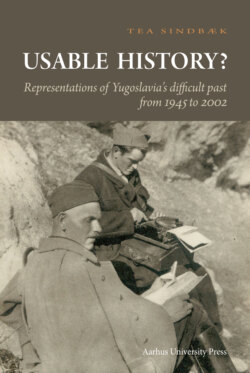Читать книгу Usable History? - Tia Sindbaek - Страница 7
The importance of context
ОглавлениеRepresentations of history take place in communicative acts, in the forms of texts, or discourse. I suggest that any act communicating history may be understood as a discursive act in the sense of Norman Fairclough; a form of social practice within a socially and materially constituted reality.17 Thematization is one type of discursive act, which denotes what is of high priority or what could be assumed within a particular text or discourse.
Discursive acts contribute to characterising and constituting society, but are themselves shaped and constrained by what is already socially and materially constituted. Obvious examples of constraining structures in our case are established institutions of historiography and the presence of political power close to the production of historical discourse. Political and social contexts are fundamental in enabling and constraining the communication of history.
These contexts remain essential to every re-representation of historical discourse. As texts and discourse travel from context to context they are surrounded by changed conditions of replication and commentary, and influenced anew by relationships of power, as well as the inscription of ethnic and other categorisations. When discursive acts reappear in new contexts, they are invested with new meanings.18 The medium and genre in which they appear constrain and enable discursive acts, too. A historian interpreting past events in a newspaper article will inevitably have to state points in a sharp and concise manner, without the lengthy hedging, clarification, and emphasis on important exceptions and complexities that would be standard in a scholarly book. While chances are that the statements made in the newspaper will reach a larger audience, these statements will probably also seem less balanced and, in sensitive cases, more confrontational.
Political and social contexts are also crucial to the reception of discursive acts. Once a discursive act has left its author, its interpretation is essentially the property of the reader or receiver, and this interpretation is necessarily influenced by the context in which the act is received.19 Thus, the contexts in which history is communicated are of crucial importance to the production of historical representations as well as to their reception and further communication. A text thematizing genocide is received differently in a context of common interethnic interests and agreed future perspectives than in one of polarised ethnic relations and political instability.
Since the part of Yugoslav historical culture concerned with twentieth century history was strongly influenced by politics, political circumstances and agendas set a framework of constraints and possibilities for the communication of history. Therefore, in this book, the main political developments, and especially cases in which the field of history is specifically addressed, are discussed in relation to productions of historical accounts.
